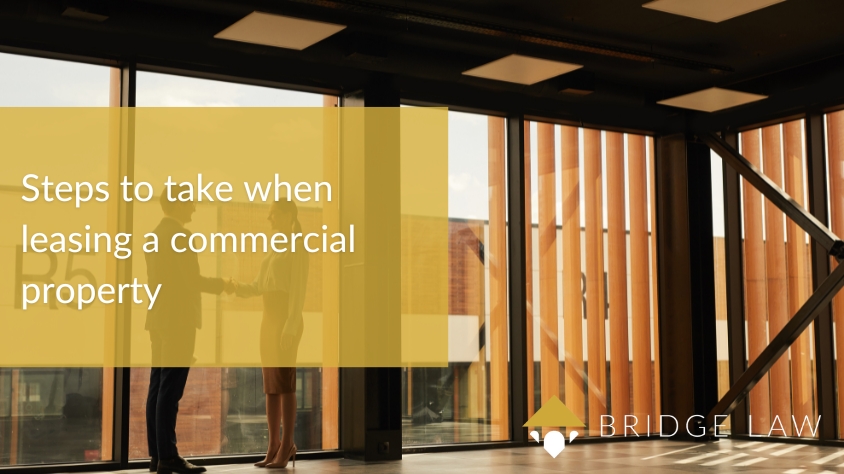Steps to take when leasing a commercial property

Commercial property leases are more complex than renting to a residential tenant. Therefore, it is important to take appropriate steps to ensure commercial lease agreements are drafted clearly, with particular attention to detail and consideration of the business operations that will take place in the property. In this article, we’ve highlighted some steps to take to ensure your lease agreements cover all bases to protect both the landlord and tenant later down the line.
Clearly state any restrictions or specific terms
It is important that landlords make potential business tenants aware as early as possible of any restrictions or very specific terms the landlord intends to include in the lease. Although in the early stages, these can be open for negotiation. Once agreed upon, they should be very clearly written in the lease agreement.
It’s important to avoid using language in the agreement that may be open to misinterpretation, to reduce the risk of claims against either party down the line. A legal professional specialising in commercial leases will be able to assist to ensure you fully understand the terms you are agreeing to and written in a way that avoids the chance of misinterpretations, whether in the lease agreement or during the negotiation process.
Determine the lease term, expiry process and break notices
A commercial lease often lasts much longer than a residential tenancy – and as a business is relying on the property for its business operations, it is important the lease term and how the expiry of the lease is to be handled offer some certainty to the business tenant and the landlord.
There are a few types of commercial lease agreements you can opt to enter into, including:
- A fixed-term lease, which has an end date and is contracted out of the provisions of the Landlord and Tenant Act 1954.
- A fixed-term lease will otherwise, automatically continue on the expiry of the term (unless the tenant vacates the property), until notice is given under the Landlord and Tenant Act 1954. A lease can also incorporate a break date allowing the parties to terminate the tenancy at an earlier date.
Break notices usually have pre-conditions attached to them. Before serving a notice or on receipt, it is important to review those terms as if they are not complied with, the notice may be invalid.
If the tenancy is to continue under the Landlord and Tenant Act 1954 a statutory notice will usually be required to bring the tenancy to an end. For both the landlord and the tenant they can elect to request or propose a new tenancy in the notice. In certain circumstances, the landlord can oppose the grant of a new tenancy by serving a notice opposing such a grant, or serving a counter notice on receipt of a tenant’s request.
Seek specialist legal assistance
Due to the complexities and bespoke nature of a commercial lease agreement, they are often more difficult to understand and are generally open to more scrutiny and rules So, it is recommended you seek advice and assistance from a specialist solicitor before entering into a lease, serving notices or when a notice is served on you.
A specialist commercial property solicitor will also be able to answer any questions you may have about the lease, advise you on your rights and obligations and handle the negotiation process for you if you wish – whether you are the landlord or the business tenant.
A solicitor will also work with you to determine the appropriate terms for your property, based on your and your tenant’s requirements, to help reduce the risk of your property being used inappropriately or leaving you open to difficulties in the future.
If you need further advice on a commercial property lease, speak to our specialist team on 01484 442 700 or 0161 427 0084.
Written by Jonathan Cass

Business Property Lease, Commercial Property Lease, Commerial Property
